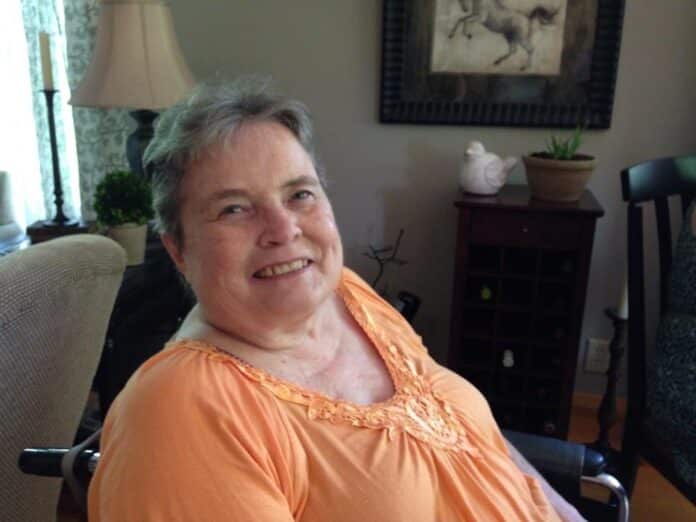Editor’s note: This is one of a continuing online series of profiles of the more than 12,000 Hoosiers who have died from COVID-19. The stories are from 12 Indiana newspapers, including The Republic, who collaborated to create the collection to highlight the tremendous loss that the pandemic has created. The series appears daily at therepublic.com.
Name: Cynthia Hyde
City/Town: Valparaiso
Age: 69
Died: May 20
Cythia Hyde was no stranger to the battlefronts life can place in front of us.
As a single young mom, she fought to raise her two children when pursuing a degree and ultimate career in nursing, graduating from Purdue in 1976, said her son, Brian Jones, of Toledo, Ohio.
Jones recalls Hyde working constant red-eye shifts to support him and his younger sister Jaime in LaPorte, Indiana.
In the early 1990s, the first of significant health-care struggles Hyde would face came in the form of a multiple sclerosis diagnosis.
But at the time, Hyde did what her family had always seen her do. She battled through it, Jones said.
“It seems like every time Mom had a struggle or something landed in her lap, she always found a way to battle through,” Jones said.
But in the coming years, multiple sclerosis would weaken Hyde’s body and breathing capacity.
She developed COPD, a debilitating lung disorder, Jones said.
Ultimately, after a number of hospitalizations, Hyde, a LaPorte native, would make the decision to move into a Valparaiso nursing home.
For 10 years, she thrived in the facility, despite her health challenges, Jones said. Hyde was active in the Life Care Center of the Willows’ nursing home community, even serving as it’s association president.
Hyde was residing there in spring 2020 when COVID-19 began sweeping our nation.
All visitation between Hyde and her family, including her three grandchildren, stopped.
The last time she saw her family was Christmas 2019.
By March 2020, Hyde was on total lock-down in her nursing home room because her age and compromised immune system put her among the highest risk groups for death from COVID-19.
“The only people she saw in and out of that room were those nurses and the nurses aides, who brought her meals and helped her in the shower,” Jones said. “And she did her part to make sure she was protected.”
But then in May, Jones received a phone call. His mother had somehow contracted the coronavirus.
“The day we talked, she wasn’t surprised,” Jones said of his mother, noting she was a nurse and knew the score. “The virus is going to virus. It does what it wants. Unfortunately, Mom was a sitting duck.”
Hyde was admitted to Porter Hospital in Valparaiso on May 13.
In the coming days, she seemed to bounce back.
Then things quickly “spun out of control,” Jones said.
Even knowing what she knew as a nurse, Jones could still sense the frustration in his mother in her final days of life.
“She hadn’t seen her grandkids since Christmas,” Jones said of the social distancing protections that were strictly observed.
“We did everything by the book, and the end result unfortunately still was there.”
For seven weeks prior to her COVID-19 diagnosis, Hyde lived in a 14-by-14-feet room, robbed of a chance to live her life as she had come to enjoy it.
COVID-19 unceremoniously brought an end to all of it on May 20, Jones said.
It’s a finality that Jones didn’t think he would have to face, given the fighting spirit his mother had always shone.
“Even when she was intubated, I thought, ‘Well, it’s my Mom. We’ll give it seven or eight days, and she’ll probably come back off the vent.'”
Jones said his mother would want everyone she left behind to continue keeping themselves as safe as possible through social distancing and other good health practices.
But she also would want them to enjoy life as much as possible, something she couldn’t do in the weeks leading up to her death.
In one of her last conversations with her son, Hyde lamented not being able to hug her grandchildren and being isolated from everything she loved, Jones said.
“We have to be diligent,” Jones said. “We’ve got to do all these things and be safe…”
But risk mitigation — living life while being as careful as possible — is important for all of us, Jones said.
— Contributed by The Times of Northwest Indiana





